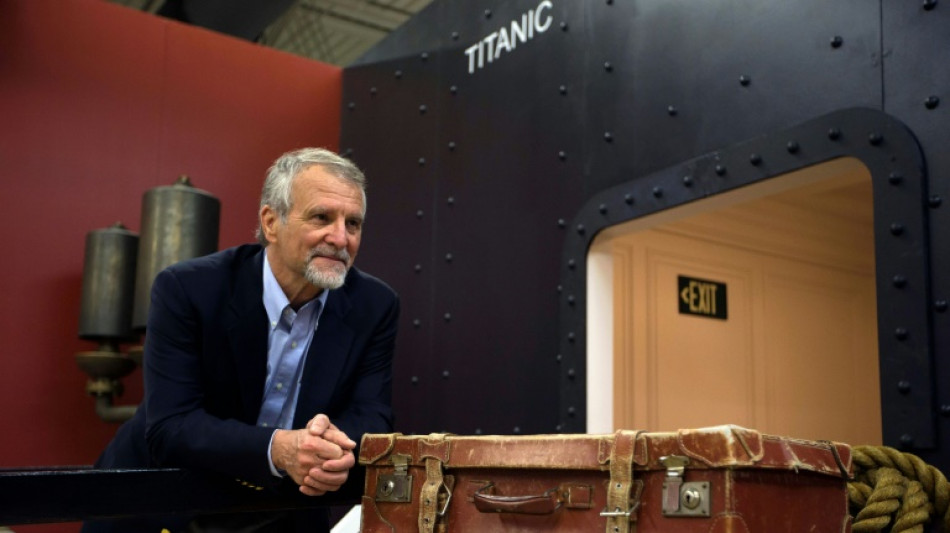

France's 'Mr Titanic' among sub missing
A French submarine operator and daredevil deep-sea explorer dubbed "Mr Titanic" is among the crew of a submarine which has gone missing while exploring the wreck in the Atlantic Ocean.
Paul-Henri Nargeolet, 77, has dived all over the world and spoke openly about the risks of his exploits in the most inaccessible waters of the world's oceans, often thousands of metres below sea level.
"When you're in very deep water, you're dead before you realise that something is happening, so it's just not a problem," he told the Irish Examiner newspaper in 2019.
Rescue teams were racing against time on Tuesday in the hope of finding the tourist submersible that went missing near the wreck of the Titanic with Nargeolet and four others on board.
Nargeolet's family confirmed to the BFM TV channel that he was among the crew, which also included British businessman Hamish Harding and prominent Pakistani businessman Shahzada Dawood and his son.
Connecticut-based Nargeolet had already undertaken more than 30 dives to explore the Titanic and had supervised the recovery of around 5,500 objects, including a fragment weighing 20 tonnes that is displayed in Los Angeles.
After the discovery of the wreck in 1985, the mythical ship became the focus of the second half of his life after his retirement from a 25-year career in the French navy.
"Of course I'd seen reports on the subject, but I never imagined that it was going to play such an important role in my life," he said in an interview for the Cite de la Mer museum in Cherbourg, France.
His research, written up in a 2022 book called "In the Depths of the Titanic", also saw him question the findings of British and American enquiries into the disaster which concluded that the ship suffered a 100-metre gash in its side after hitting an iceberg.
Based on his observations and scans at the scene, he argued that five much smaller holes were to blame.
- Salvage operations -
His work recovering objects from the ship on behalf of the US-based owner of the wreck, RMS Titanic, was the subject of criticism by relatives of the 1,500 people who perished on the ship, however.
Some of them felt the wreck should be left alone as a burial site and objected to a private company profiting from the tragedy, having been given the salvage rights under longstanding US maritime law.
In 2011, 5,000 artefacts found around the wreck were auctioned off including jewellery, a compass and megaphones, valued at $189 million.
Nargeolet argued that the sales were needed to fund more dives, and that they helped preserve the memory of those onboard.
"One morning, one survivor whose father had died in the catastrophe criticised me for recovering objects and in the afternoon another congratulated me and asked me to look for a pearl necklace that her mother had left on her bedside table," Nargeolet told Le Monde newspaper in May last year.
No human remains have been found around the site and any bodies which went down with the ship would have been dissolved in the acidic sediment on the sea floor.
Nargeolet was also a technical advisor in the so-called "Five Deeps Expedition" in 2019 with American explorer and private equity investor Victor Vescovo, which aimed to explore the deepest points in each of the world's five oceans.
Vescovo's 4.6 metres (15 feet) long submersible called the DSV Limiting Factor set a record for the deepest dive after descending 11 kilometres in the Pacific Ocean's Mariana Trench.
In his interview with Le Monde last year, Nargeolet said one of his future plans was to study the sea creatures that had made the rusting hull of Titanic their home.
"The Titanic is an oasis in an immense desert," he said.
O.Zimmermann--HHA



